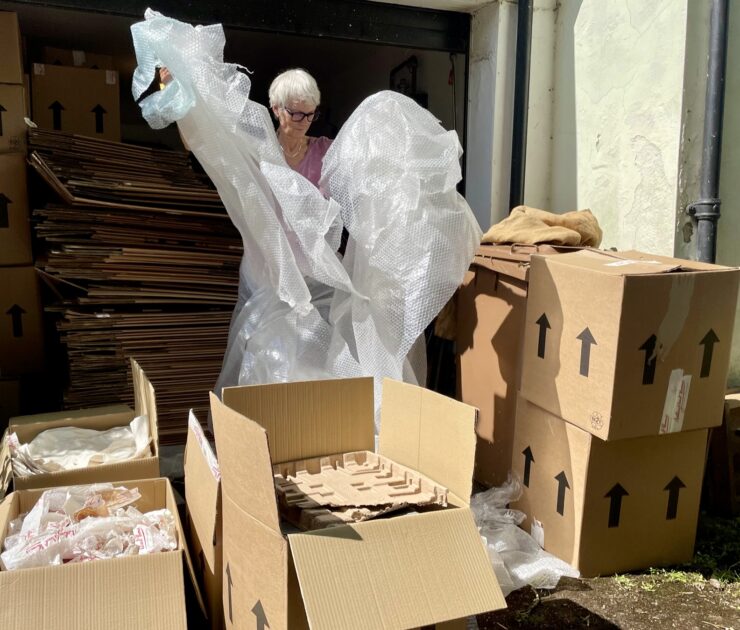How Stress Affects Your Body
First published in the NASGP Newsletter on 20 May 2024

A three-legged stool is a favourite metaphor for stability. It’s used by economists, business leaders and the US Republican Party, among others, to explain how they keep things on an even keel. And it’s the go-to metaphor for describing how lives fall apart when something important goes wrong. Most people would agree that if three supports are secure – work, emotional relationships and a home – they can cope with other tribulations.
The three-legged stool analogy doesn’t stand up. Firstly, it assumes that all three legs are the same length. Which for more and more people in the world, they aren’t.
Secondly, not everyone depends on the same three supports. And even those who can call on other resources when life throws a googly are aware that stress takes its toll on their physical and mental ability to cope.
I am surprised how little scientific research there is on the effects of stress on health. In 1967 two American psychiatrists, Thomas Holmes and Richard Rahe, consulted the medical records of 5,000 patients to see if stress was linked to illness. The respondents were asked to rate the degree of stress perceived for 43 life events ranging from the death of a spouse through trouble with the in-laws to changes in church activities. From the results they created a Social Readjustment Rating Scale. Other studies have confirmed that there is a positive correlation between life events and ill health.
More than 50 years ago there was no climate change, no Trump, no social media, all of which would probably feature in any twenty-first century list of stressful events. But nowhere in the Holmes & Rahe scale does ‘moving house’ appear. Strange, because domestic dislocation is a common life event which creates a lot of uncertainty. Someone once said it was worse than being abducted by aliens. After 25 years in one home I am now moving, and I find that every step in the process provokes stress and anxiety. Not surprising if ‘home’ is the third leg of the stability stool. Hopefully manageable if work and relationships are secure, as mine are. But job loss and divorce are frequent reasons for moving house – a double or even triple whammy.
As we know from patients, and often from our own lives, acutely stressful life events can pile up. Uncertainty is the problem which keeps people awake at night, chewing their nails and drinking too much.
Uncertainty can dog any stage in a procedure as complex as selling and buying a house, from making the decision to move to the colour to repaint the new front door. People who are forced to downsize because they have lost a prestigious highly-paid job will find the process much more traumatic than they would if they were moving to somewhere smaller because the kids have left home. For everyone, keeping a home pristine and perfumed with flowers, brewing coffee and baking sourdough to impress the prospective buyers tramping through their personal space, is tedious.
Moving usually involves a change in lifestyle. The lawnmower won’t be needed anymore, or the bicycle. Most people have a mountain of stuff that ‘might come in useful’ pushed into drawers and cupboards and sheds. Deciding the fate of so many unrelated objects generally starts with thinking slow. But no advice site warns you how long it takes to take things to Oxfam, or to offer them on Gumtree and be around when purchasers want to collect. Then there is what’s left over – how can it be disposed of ethically? In some neighbourhoods anything left on the pavement will disappear quickly. In others it may incur a fine. It isn’t easy to find out what is recyclable. Is passing the decision on to the charity shop shirking responsibility? Does taking sacks of stuff by taxi to a recycling centre make environmental sense?
People have said that bereavement and bankruptcy might be more stressful than abduction by aliens . . . I’d add moving house.
As moving day draws near and decision-making fatigue sets in, thinking slow gives way to thinking fast. So the household waste fills up with hundreds of oddments. They will probably end up in landfill in Turkey. Aunt Rosa’s chipped teapot will join all the surplus that industry dumps before it gets anywhere near the shops. Maybe the moral distress will trigger a personal or even public campaign – once you are settled in your new home. But that takes time.
Moving to a new area can be a culture shock. Townies anticipating a restful life in the country may discover that a blissful holiday spot is, well, boring. Any move means learning new routines; even cats suffer relocation anxiety.
But memories of adverse events fade. Otherwise, all children would be singletons and people would only make one major move in their lives. Even after a natural disaster, the PTSD gradually lessens. Physiological markers of stress, including shortening of the length of telomeres, resolve when life calms down. In time, the cascade of anxieties will be relegated to the past. After a few months the dentist is pleased to note that the patient has finally stopped grinding her teeth.
Some people have said that bereavement and bankruptcy might be more stressful than abduction by aliens. At the moment I’d add moving house. But amongst the prospective purchasers and sellers, the estate agents, solicitors, insurers, movers, council administrators, electricians, plumbers, builders, painter-decorators, locksmiths, internet salespeople and chancers on eBay, Gumtree and Freecycle, I have not yet encountered any aliens and so I couldn’t possibly comment.